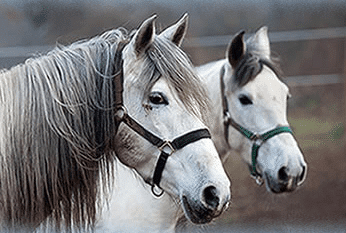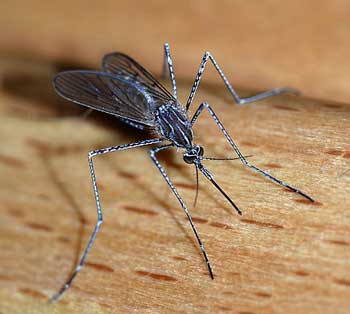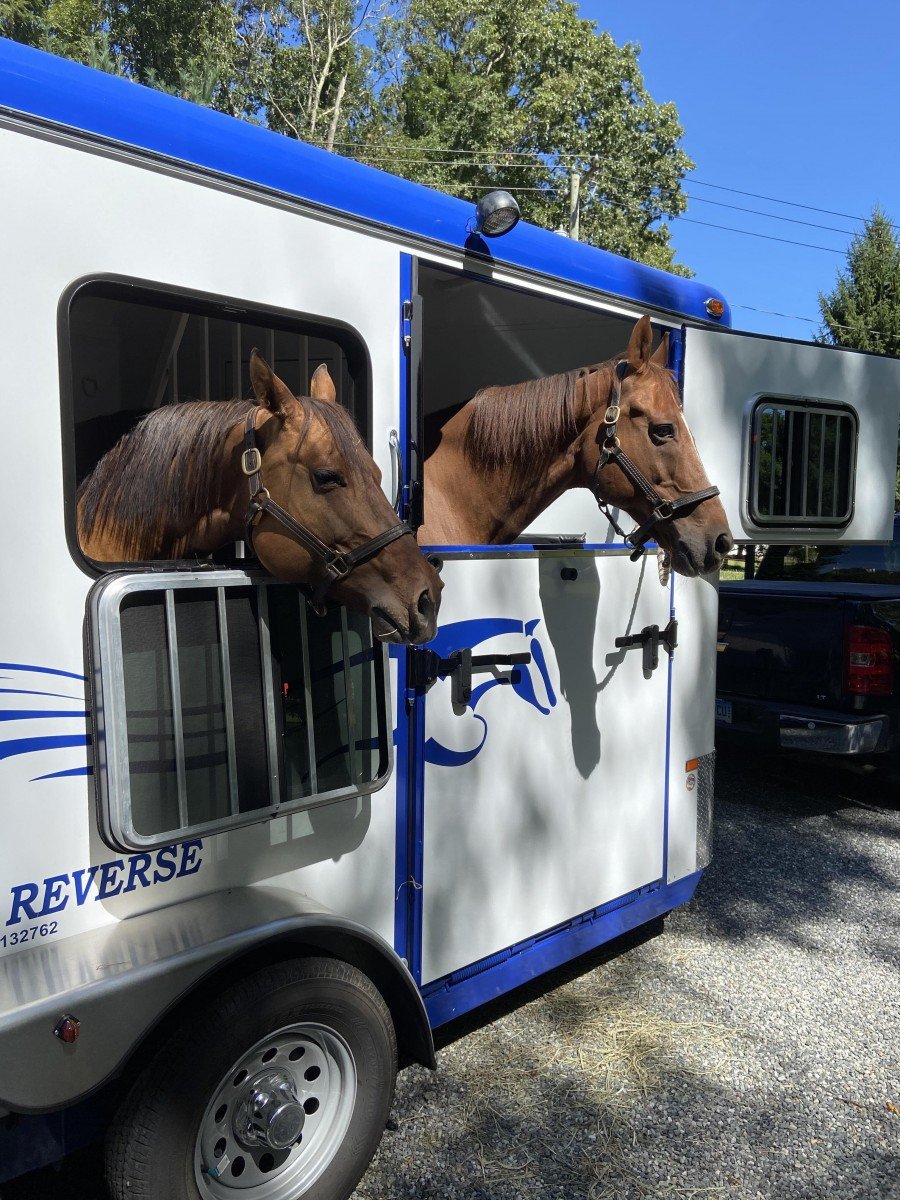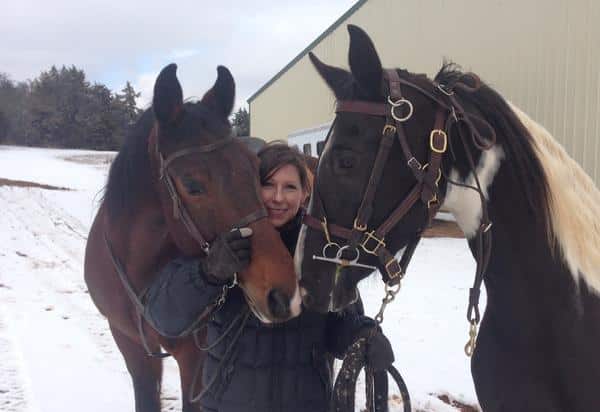How to Protect Your Horses from Viruses
 It’s a little thing that causes big problems… the virus. And this last year has given us all a healthy respect for sicknesses it can cause.
It’s a little thing that causes big problems… the virus. And this last year has given us all a healthy respect for sicknesses it can cause.
While humans battle COVID-19, our horses have their own war to wage. Just look at Washington State University where eleven horses contracted equine influenza. This is a common, highly contagious respiratory disease that affect horses across the globe. Since it can easily be spread from horse to horse these eleven horses were quarantined while they recovered under veterinary care.
Should you be concerned about equine influenza in your area? What other infectious diseases might be lurking in your neighborhood? What can you do to protect your horses when traveling with your horse trailer?
In this article, we’ll look at the top infectious diseases caused by viral and bacterial infections that plague our four-legged friends. You’ll hear from two respected veterinarians who break it all down. Plus, you’ll learn the top ways you can prevent the spread of viruses to your own horses.
Top Horse Respiratory Diseases to Watch For
As you may know from your own vet’s visits, there are a number of diseases that can affect your horses. Top respiratory diseases to be concerned about include:
- Equine herpesvirus 1 and 4 (rhinopneumonitis)
- Equine influenza virus
- Strangles (streptococcus equi equi)
We spoke with Dr. Freya Stein of McKinlay & Peters Equine Hospital in Newman Lake, WA. She explained that these diseases can be spread from horse to horse through the air. Any surfaces which become contaminated with nasal discharge and respiratory droplets can also spread the disease.
Luckily, all three of these diseases are not infectious to humans. “However,” Dr. Stein cautioned, “humans are really good at spreading disease between horses via touch and shared equipment.” This might include contaminated boots, humans touching horses, shared stalls, or shared tack and equipment.
All of these respiratory infections are moderately to highly infectious. Usually they will cause a mild to moderate illness and may not even require veterinary care. Your horse just may act a big sluggish with watery eyes and a cough for a few days until he recovers.
Dr. Stein continued, “They can result in long rest periods for infected horses and the potential shut-down of an entire bar or event because of the contagiousness of these diseases.”
The symptoms may be severe though. Equine herpesvirus can cause loss of normal bladder function and make your horse wobbly on his legs. He might have trouble standing as a result. Equine herpesvirus 1 can also cause significant neurological problems. Then, Strangles can cause throat swelling (sometimes severe) that makes it difficult for your horse to eat, drink, or even breathe.
Rabies
Rabies can be transmitted to humans from horses. It is transferred most commonly by the bite of an infected animal. It can also be spread via bodily fluids like saliva when humans handle an infected horses.
Dr. Linda Hagerman and her team from Tacoma Equine Hospital in Tacoma, WA shared their thoughts as well. “Although not common in our area, rabies is 100% fatal and so annual vaccination is recommended.”
Tetanus
This next one can cause severe to fatal disease with constant and potentially crippling muscle tightening. Tetanus is caused by a soil-living bacteria. It is able to infect your horse when there is a puncture would with where the bacteria is embedded deep under the skin. Horses can even contract a tetanus infection from an open hoof abscess.
Dr. Stein explained, “Keeping up to date with yearly tetanus vaccination is quite important. Tetanus is not a contagious disease, although multiple species are susceptible to infection.”
Neurological Diseases Caused by Viruses

- West Nile Virus (WNV)
- Eastern Equine Encephalitis Virus (EEE)
- Western Equine Encephalitis Virus (WEE)
All three of these viruses are spread via a mosquito bite and are not contagious from horse to horse or horse to human. Humans can get West Nile Virus, but only directly from an infected mosquito.
EEE and WEE are often fatal while WNV is a bit more survivable. Still, a horse with WNV may need significant hospital care and a long recovery period. It can also leave a horse with long term neurologic problems.
Pigeon Fever
This last one is caused by a bacteria that is becoming more and more common in the south central and western United States. It’s rarely seen in the north Midwest or Eastern US. Pigeon fever (corynebacterium pseudotuberculosis) causes large abscesses under the skin usually on a horse’s chest. It makes the horse look “pigeon breasted,” hence the name.
The bacteria that cause pigeon fever live in the soil and are transmitted to horses by fly bites. Another horse with abscesses can also spread the bacteria to a horse or human. Vaccination is currently not available for this particular infection.
Take These Precautions to Protect Your Horses

- Always use your own water buckets and equipment. Do not put the water hose in buckets, and limit nose-to-nose contact with other horses.
- Watch your horses after traveling with your horse trailer. Temperatures taken daily or at least upon arrival at shows or large events would also be a practical way to catch diseases or infectious horses. Watch your horses closely for coughing, nasal discharge, or lethargy.
- Use biosecurity measures for new horses on the farm. Whenever a new animal is brought to a new boarding barn or home, they should be quarantined for at least 21 days with appropriate biosecurity measures. Biosecurity means that horses don’t share water buckets or feed bins, avoid handling other people’s horses, and wash your hands in between touching other horses. Again, limit nose-to-nose contact between horses.
- Control flies and mosquitos on your farm. Use insect repellant, fly predators, and fly sheets/masks to protect your horses. Also make sure that standing pools of water are limited so the insects don’t use them to breed.
- Get booster shots if you travel a lot. If your horse is travelling frequently or is exposed to other horses, get a booster shot for the Flu-Rhino (Influenza and Rhinopneumonitis) vaccine every 3-6 months.
- Vaccinate! If you have horses on your farm who typically stay at home, the traveling horses could still bring a disease home with them. So make sure you vaccinate all of the horses.
How to Know If Your Horse is Sick
The doctors shared this list of symptoms you should be on the lookout for with your horses.
- Fever (anything over 101.5 F in an adult or 102 F in a neonate to weanling) - Owners should be comfortable taking a rectal temperature on their horse. A regular digital thermometer works great for this. Often horses lose their appetites when they have fevers, but not always.
- Nasal discharge (take note of what the discharge looks and smells like and whether it comes out of both nostrils or just one)
- Cough
- Swelling under the throatlatch
- Lethargy/abnormal behavior
- Decrease in appetite
- Decrease in manure production
- Change in manure character (hard and firm, or really loose and watery)
- Swelling in one or more limbs
- Inability to stand on one or more limbs.
- Abnormal neurologic signs include ataxia (wobbliness), leaning to one side, tilting the head consistently to one side, and a change in normal attitude and responsiveness.
Equine Influenza Precautions in Washington State
While our nation and world deals with the COVID-19 pandemic, the people in Washington State have a much smaller scale outbreak to watch carefully. We rounded our interviews by asking both Dr. Stein and Dr. Hagerman about the Equine Influenza outbreak in Washington State in the Fall of 2020.
Dr. Hagerman explained, “Boosting immunity to influenza with vaccination is recommended to limit risk of infection. However, it can take up to 2 weeks to obtain immunity after vaccination. We recommend limiting exposure to other horses when in an area that is experiencing an outbreak. This includes limiting large group trail rides, travel to other facilities, or attending shows.”
She continued to explain how equine influenza is highly contagious and can spread quickly through the equine community. Luckily, it has a very low mortality rate. Clinical signs typically include fever, cough and/or nasal discharge. Due to the highly contagious nature of the disease, it is reportable in the state of Washington and properties will be placed under quarantine for 30 days after a positive case is identified to limit spread.
Dr. Stein added that equine influenza more often than not resolves on its own with minimal intervention including rest and supportive care. She mentioned that it can result in more serious disease and secondary bacterial pneumonia, and it is quite contagious.
“I would treat it as a big deal if I were a horse owner. Vaccination and biosecurity measures at home and at the show (a lot like COVID-19 measures actually) can hugely reduce the risk of a horse getting sick, and I can’t emphasize this enough. It can take up to a week for exposed horses to start showing signs of illness, so owners should watch horses carefully after coming home from an event and try to keep these horses separate from the rest of the herd for the week if at all possible.”
Resources to Learn More
- Owners can keep an eye on any potential outbreaks in the area: https://www.equinediseasecc.org/alerts
- For more information on infectious disease guidelines specific to each disease: https://aaep.org/guidelines/infectious-disease-control/using-guidelines
- Vaccination Guidelines: https://aaep.org/guidelines/vaccination-guidelines
About the Veterinarians



